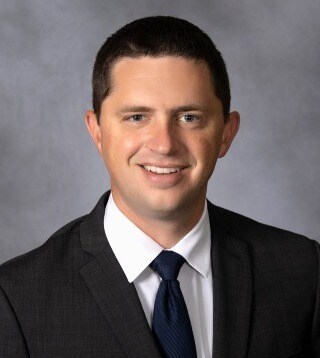Hearing a Treat Again for Richton Park Man Following Cochlear Implant Surgery at Silver Cross
 Much to his surprise, Larry Miller of Richton Park shares something in common with The Incredible Hulk’s Lou Ferrigno. Both underwent cochlear implant surgery this year. Miller had his at Silver Cross Hospital in New Lenox, and both agree their lives have been transformed.
Much to his surprise, Larry Miller of Richton Park shares something in common with The Incredible Hulk’s Lou Ferrigno. Both underwent cochlear implant surgery this year. Miller had his at Silver Cross Hospital in New Lenox, and both agree their lives have been transformed.
Miller had been wearing hearing aids for 10 years, following years of working around loud machines, despite donning ear protection. But even after retirement, his hearing grew worse, especially in his right ear.
“Every time I would go in to the audiologist, I would say, ‘Turn it up,’” said Miller, 71, of Richton Park. “He said, ‘I can’t turn them up any higher. You need to go to a specialist to see what’s going on.’”
Miller found Dr. Scott DiVenere, an otolaryngologist at Silver Cross Hospital. After running some tests, Dr. DiVenere told Miller he was a candidate for a cochlear implant, and referred him to Dr. Matthew Bartindale, an otolaryngologist specializing in head and neck surgery – and cochlear implants.
“Patients who are cochlear implant candidates don't just have a volume issue, they also have a clarity issue,” said Dr. Bartindale.
“You can think of hearing like an old analog radio -- there's the volume knob and the frequency knob. Larry's volume knob wasn't great, but that can be ‘turned up’ with hearing aids. His problem, especially in the right ear, was the frequency knob. Even amplified to a loud enough volume where he should have been able to understand based on his ‘volume,’ he only understood 8 percent of words on the right ear and 52 percent on the left.
“We then did a formal cochlear implant evaluation, which is simulating the real world where you wear hearing aids with full sentences. That showed he only understood 23 percent of sentences in the right ear.”
About Cochlear Implant Surgery
 Cochlear implant surgery has been around since 1978, and the most notable case was earlier this year when former champion body builder Lou Ferrigno, better known for playing “The Incredible Hulk” on television, was able to hear the world clearly after nearly a lifetime of almost total deafness.
Cochlear implant surgery has been around since 1978, and the most notable case was earlier this year when former champion body builder Lou Ferrigno, better known for playing “The Incredible Hulk” on television, was able to hear the world clearly after nearly a lifetime of almost total deafness.
Miller’s decision to have the surgery was easier after learning insurance, including Medicare, covers cochlear implant surgery, unlike hearing aids, which are not covered.
During his one-hour surgery, Miller was under general anesthesia as Dr. Bartindale made a 1-inch incision (no hair trimming necessary) and placed the cochlear implant.
Several weeks later, Miller received his external processor, which receives and processes sound. This connects to an internal receiver/stimulator through the skin with a magnet. The receiver/stimulator has an electrode which goes into the inner ear and directly stimulates the hearing nerve.
“Your brain will learn how to understand those electrical impulses when you start using your cochlear implant,” Dr. Bartindale said. “You will take the external processor on and off like a normal hearing aid, and the internal receiver/stimulator will stay in permanently.”
During a test in November with his hearing aids, Miller repeated 8 percent of words correctly; after five weeks of active use with the Cochlear, that increased to 44 percent.
In other tests, when Audiologist Kristine Eubanks, who works with Dr. Bartindale, checked his hearing again after those five weeks, Miller went from 37 percent to 70 percent in understanding words, and sentences from 23 percent to 70 percent in understanding sentences.
“I didn’t think I did that well,” Miller said. “But I can hear the refrigerator running now; the dishwasher going. I could hear my daughter texting and my dog’s nails on our hardwood floors.”
Dr. Bartindale said patients have most of their improvement in the first three months; continuing to improve for at least a year. Miller’s volume levels are normal now, he said, as is the TV volume, his wife added.
Improvement continues not only with use, but Miller has an app on his phone that tests his ability to hear words and sentences.
“I still have a little trouble with loud background noise like trucks,” Miller said. “But I can hear and understand two conversations at once again.”
Miller expects his hearing to be even better when he receives a new hearing aid for his left ear that will work in concert with the cochlear implant. “Right now, it’s like they fight each other,” he said.
“I can hear so much more now … even some things I don’t want to hear!”
For more information, visit silvercross.org